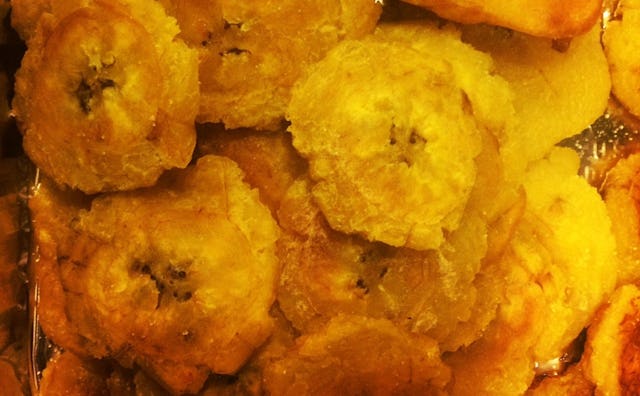Lost in Translation: How I Rediscovered My First Language

That’s the easy answer as to why I now sit in Spanish class every Wednesday evening (with una comadre for motivation and support), despite the fact that my first language from birth was Spanish. Granted, the class is far from language 101. It’s “Spanish Film and Conversation,” but still. “Qué pena!” I hear fluent Latinos scolding me. I wish this was just laziness, but as those of us who grew up in multi-culti families know, flabby language muscles are due to many sclerotic agents, including zeitgeist and geography.
Zeitgeist
In the ’70s and ’80s, it was just not cool to speak anything other than English. And I’m not talking pop-culture not cool but get-your-ass-kicked not cool. As my dad told it, we were an English-only house due to his immigrant father’s stories of being beaten by his teachers in kindergarten if he spoke anything but English. Remember, the demographics and business climate of this country have changed dramatically. The Latino population has gone from around 9 million in the 1970s to near 60 million today and is on track to more than double that number by 2060.
So when I was a kid, we were just a small fraction of Americans, following waves of non-English-speaking Italians and Asians. And, for the most part, it was all about assimilation back then, for everyone. Now, even though Latino growth is mostly about U.S. born Hispanics with English dominance, there is little question that we are authentic Americans if we simply speak Spanish (of course, visit “geography” below to find the people who do question it). After all, to compete in a global market, learning another language or capitalizing on what you speak at home is all the rage, and frankly, the truth on many levels. Gracias a Dios for that.
Geography
The demise of my bilingual superpowers began when we moved away from the substantially Hispanic enclave of upper Manhattan. This was where various arms of my family populated a couple of blocks, and Spanish was a constant. Had my brother and I stayed in the city, our Spanish most likely would have stayed too, even if it wasn’t spoken by our parents in our own house. There would have been no way to escape the need to use it. But as kids, we moved to New Hampshire, where our four younger sisters were born. I joke now that our family integrated the state decades ago, but it certainly didn’t feel like a joke then. The language question my brother and I got most often—after “So, do you speak Chinese?” (because that was cool)—was, “So, do you speak Puerto Rican?” Gente! Need I say more?
Surely, the state has changed quite a bit, but as we know from our ugly modern politics, there are still places in this country where speaking Spanish, specifically, would not go over well in the supermarket, as my mother did once when we first moved. Once. (Xenophobia cleanup, aisle three.) And to add a twist, I ended up at a French-Canadian Catholic school where they only taught French. At my first Spanish class last week, the languages fought for dominance in my brain and I said “gateau” for cake, which sounds like “gato” in Spanish. Zut!
I got into language-shape once again in my early 20’s when I lived and worked in Santiago, Chile and Mexico City. When I returned stateside, I was so proud to speak to my mother in her (our) native tongue again. But since she passed away ten years ago, I’ve come to realize that some of my setting aside of the language, as well as the millions of opportunities I have as a proud Latina-American to hear it and speak it, no longer has anything to do with zeitgeist or geography. It has everything to do with a broken heart.
My mother, and all mothers, are not only people, but cultures and histories. And after she passed away, I pushed my first language out of my life because it reminded me too much of us and the memories we shared when Spanish was there; dancing in the kitchen to salsa, folding laundry to Julio Iglesias, yelling out the apartment window at a cousin on the sidewalk, eating Abuela’s tostones and shopping with her at “May-cees.”
Today, I have practical reasons for getting myself into superb Spanish shape. But I like to think that the reason I’m finally able to devote myself to it has a little something to do with healing. As for my daughter? She’s taking Spanish in school, and doesn’t complain so much when I play my “Rev Up Latin” station. Instead, we just dance.
Photo: Carmen Rita Wong
This article was originally published on